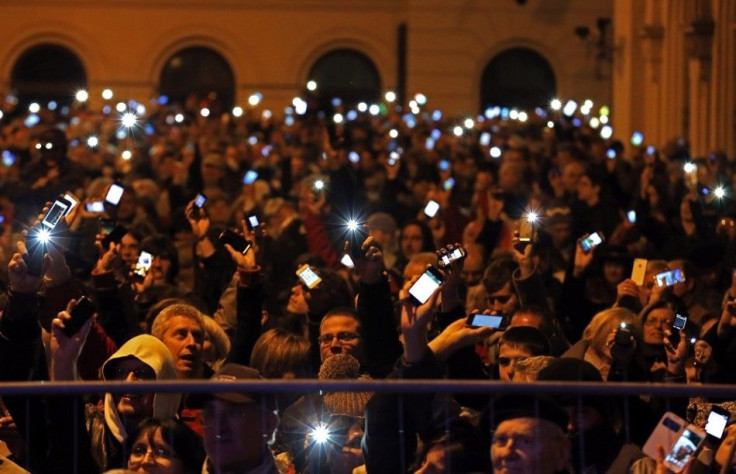Hungarians Hold Protest In Budapest Over Planned Internet Tax

Thousands of Hungarians protested on Sunday night in Budapest to express their disagreement with a government plan to impose an Internet tax of 150 Hungarian forint or equivalent of 62 cents for every gigabyte of data used started.
The proposal is in a draft 2015 tax bill that was submitted to the Parliament on Tuesday, Oct 22.
Besides the mass action in the capital city, there were also protests in the towns of Pecs, Miskolc and Vesprem. Hungarians who converged at Budapest had to go on foot 1.8 miles to reach a landmark in the city where the rally was staged, at Heroes' Square.
Chants of "Censorship, Censorship," "Europe, Europe," "Democracy, Democracy" and "Viktor get lost, Viktor get lost," were heard among the marchers. The last chant refers to Hungarian Prime Minister Viktor Orban, who leads the governing Fidesz party that announced it would submit on Monday an amendment to Parliament to place a monthly cap of 700 forints or $2.87.
Protesters said the tax is part of a wave of "alarming anti-democratic measures" initiated by the PM to push the country farther away from the rest of Europe.
Other see in the proposed tax a smokescreen so Hungarians would no longer talk about the entry ban the US made on Oct 17 against six Hungarian officials because of their alleged part in corruption. The US, however, did not identify the six officials due to rules on confidentiality.
It was the first time that nationals of a member-country from the regional bloc has been issued a visa ban.
A Facebook page with over 200,000 followers has been created to pressure the national government to withdraw the Internet tax proposal within two days or face more protests from citizens.
YouTube/euronews (in English)




















